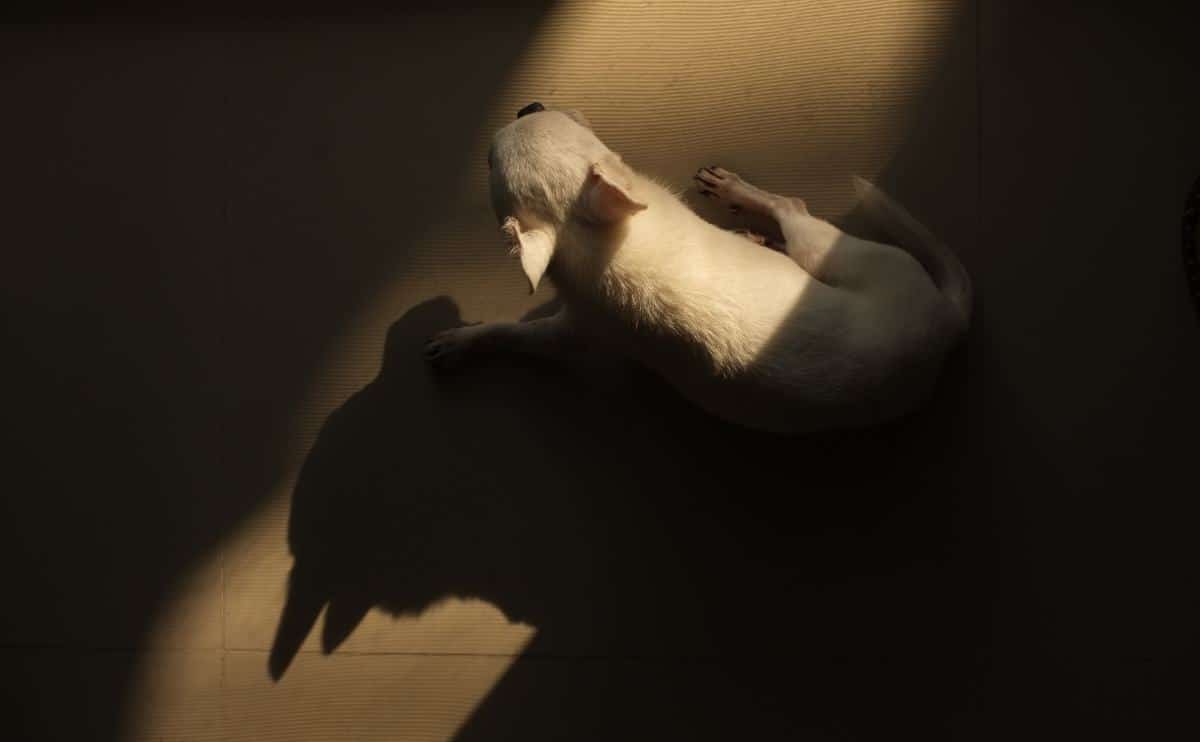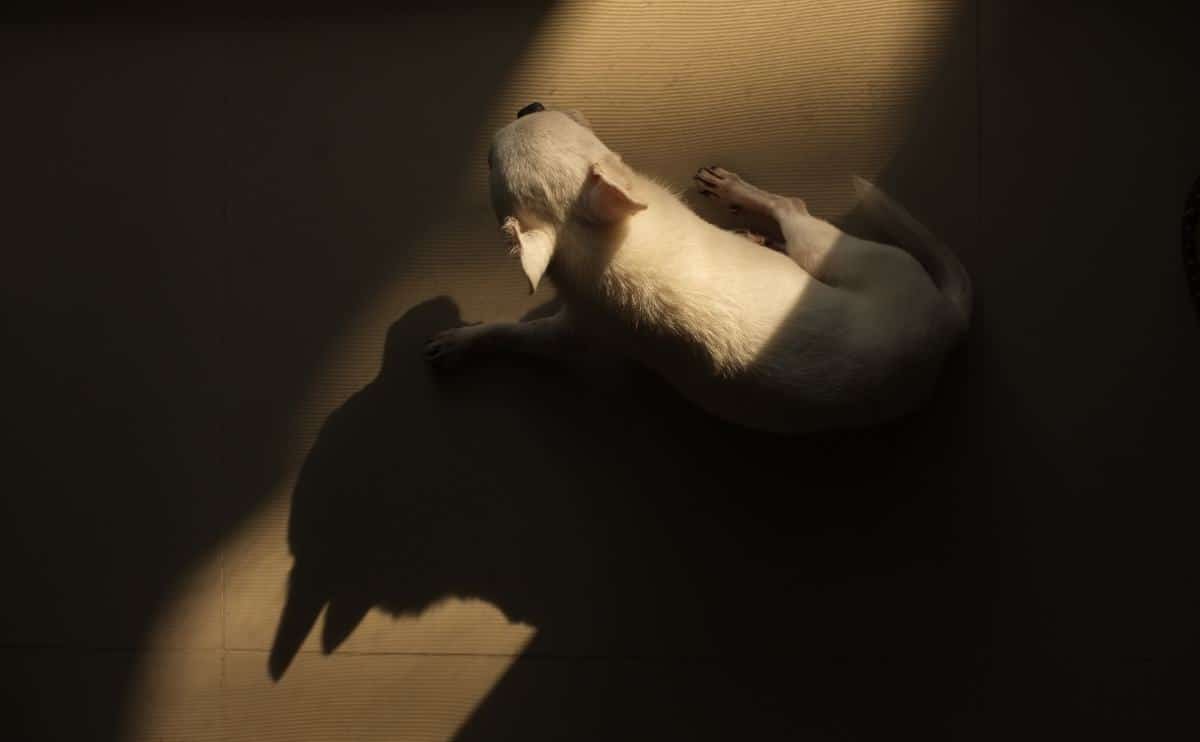
To keep the lights on, we receive affiliate commissions via some of our links. Our review process.

Many of us pup owners have to walk our dogs once the sun goes down or early in the morning before the sun fully rises. If you’re among us twilight or nighttime walkers, you may wonder, do dogs have good night vision? See what we’ve uncovered about our canines’ ability to see in the dark and how it compares to humans and cats.
Do Dogs Have Night Vision?
Contents
Not exactly. While dogs can see fairly well when you’re walking them in the dark, they don’t have the level of night vision that’s comparable to us wearing night-vision goggles. This means that they can’t see in complete darkness. Still, our canine companions do have good night vision in terms of being able to see well in low-light conditions.
Can Dogs See In The Dark Better Than Humans?
Yes, dogs have a significant leg up compared to people in their ability to see in dark conditions. Dogs can see movement and light much better than humans, according to the Merck Veterinary Manual, which helps them see better in the dark.
But we do have some visual advantages over our pups. Dogs can’t detect as many colors as humans can, and the colors they can see don’t appear nearly as bright as they do to us. Unfortunately, a canine’s visual world is restricted to a duller range of blues and yellows.
Dogs also have far worse visual acuity (the ability to distinguish fine details). Compared to the normal human vision of 20/20, dogs typically have 20/75 vision. Another human bonus, people have significantly more depth perception than dogs.
How Do Dogs See Better In The Dark?
So, why can our furry friends see better in lower light? While dogs’ eyes generally function the same way ours do, several differences in their eye anatomy give them distinct advantages. Scientists believe that our pups’ wild canine ancestors were primarily active during dawn and dusk (similar to deer, rabbits, and other crepuscular animals).
Therefore, early canines’ eyes had evolutionarily adapted to low-light conditions. As canines continued to evolve into our domesticated doggos, their eyes adapted to brighter light but still retained the anatomical advantages for low-light vision, according to the American Kennel Club. Dogs’ eyes have three main differences that give them better night vision than humans. These include:
- Retinal rods: A rod is a type of photoreceptor cell in the retina that’s sensitive to light levels and allows us to see in dim light. Dogs have a higher number of rods than humans do, giving them better nocturnal vision.
- Reflective membranes: Dogs and some other animals have the tapetum lucidum, a layer of tissue just behind the retina that reflects visible light back through the retina. This essentially amplifies light in darker conditions. Humans don’t have the tapetum lucidum. (The tapetum is what makes your pup’s eyes glow at night.)
- Larger pupil size: Dogs have larger pupils than people, and larger pupils allow more light to enter the eye.
Fun Fact: Some dogs are born without the tapetum lucidum. It’s more common in dogs with blue eyes, but this also occurs in some families of Labrador Retrievers and Beagles. Scientists don’t yet know why this occurs.
Should I Leave A Light On For My Dog At Night?
If your pup has free roam of your house while you’re asleep or even if you want him to be able to see his surroundings from his bed or crate, it can’t hurt to place a nightlight near where he sleeps. Dogs can’t see in complete darkness, so a dim light could help your pup feel more secure at night.
What Do Dogs See In The Dark? (Video)
It turns out not much based on this eye-opening experiment broadcast on BBC Two. Royal Veterinary College‘s senior scientist Rick Sanchez pits a dog’s night vision against a cat’s, and it’s a fascinating watch to see the difference!
Can I Improve My Dog’s Vision?
All dogs are nearsighted, with roughly 20/75 vision. This leaves them with an unfortunate disadvantage to decipher details compared to their owners. Although it may sound bizarre to some, you can actually get prescription eyewear for your pup. Learn more in our article about dog goggles, which also includes reviews of several non-prescription goggles you can use to protect your furry friend’s eyes from the elements.
Tagged With: Trivia